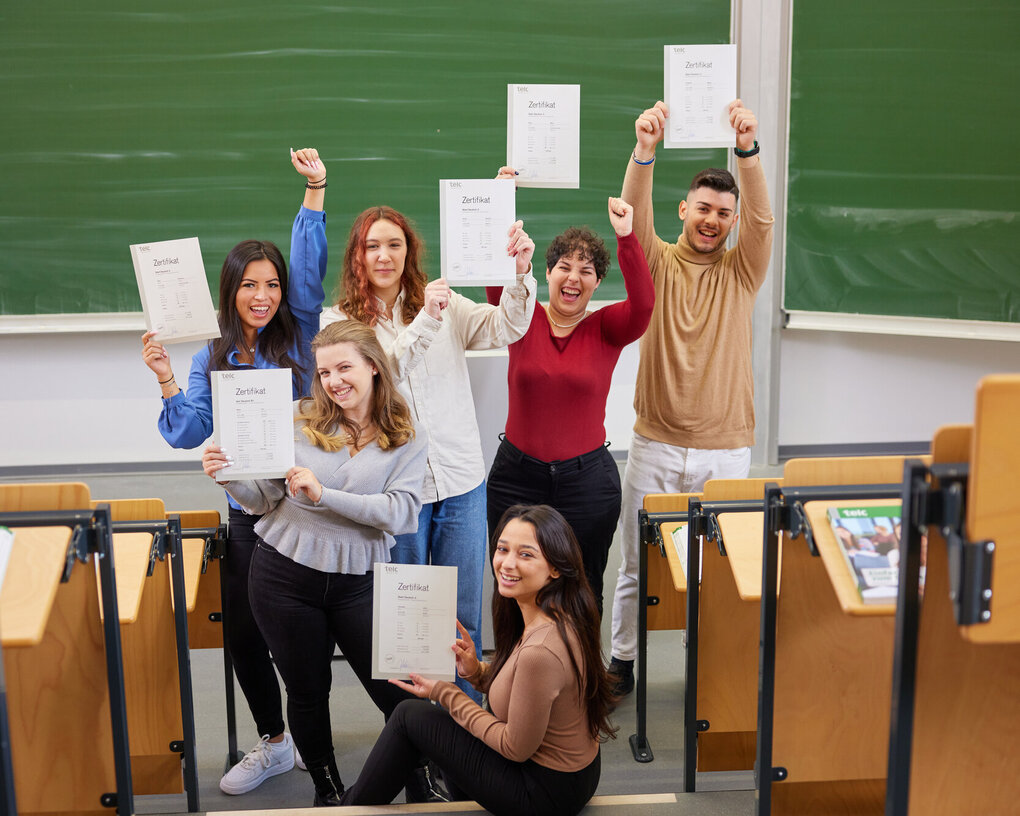Warum sollten Sie sich für Sprachprüfungen bei telc entscheiden?
Fremdsprachenkenntnisse sind in unserer vernetzten Welt eine entscheidende Schlüsselqualifikation. Ob Schule, Studium oder Beruf – Sprachen sind der Schlüssel zum Erfolg. Mit einem telc Sprachzertifikat können Sie Ihre Sprachkenntnisse nachweisen – in elf Sprachen und auf allen Kompetenzstufen des Gemeinsamen europäischen Referenzrahmens (GER).
telc Sprachprüfungen werden von führenden Fachdidaktiker:innen und Testspezialist:innen entwickelt. Eine ständige Überprüfung auf Validität, Reliabilität und Objektivität unserer Sprachprüfungen ist selbstverständlich und gewährleistet ein Höchstmaß an Qualität.
Überzeugen Sie sich selbst und lassen Sie sich durch uns sprachlich weiterentwickeln. Gemeinsam arbeiten wir an Ihrem Erfolg!
Das Erlernen der deutschen Sprache ist ein wichtiger Ansatzpunkt für eine gelungene Integration. Sprache eröffnet Menschen die Möglichkeit, sich aktiv in die Gesellschaft einzubringen und ihre Chancen auf dem Arbeitsmarkt zu verbessern. Die telc gGmbH dient damit als Bindeglied für Verständigung und Zusammenhalt.
